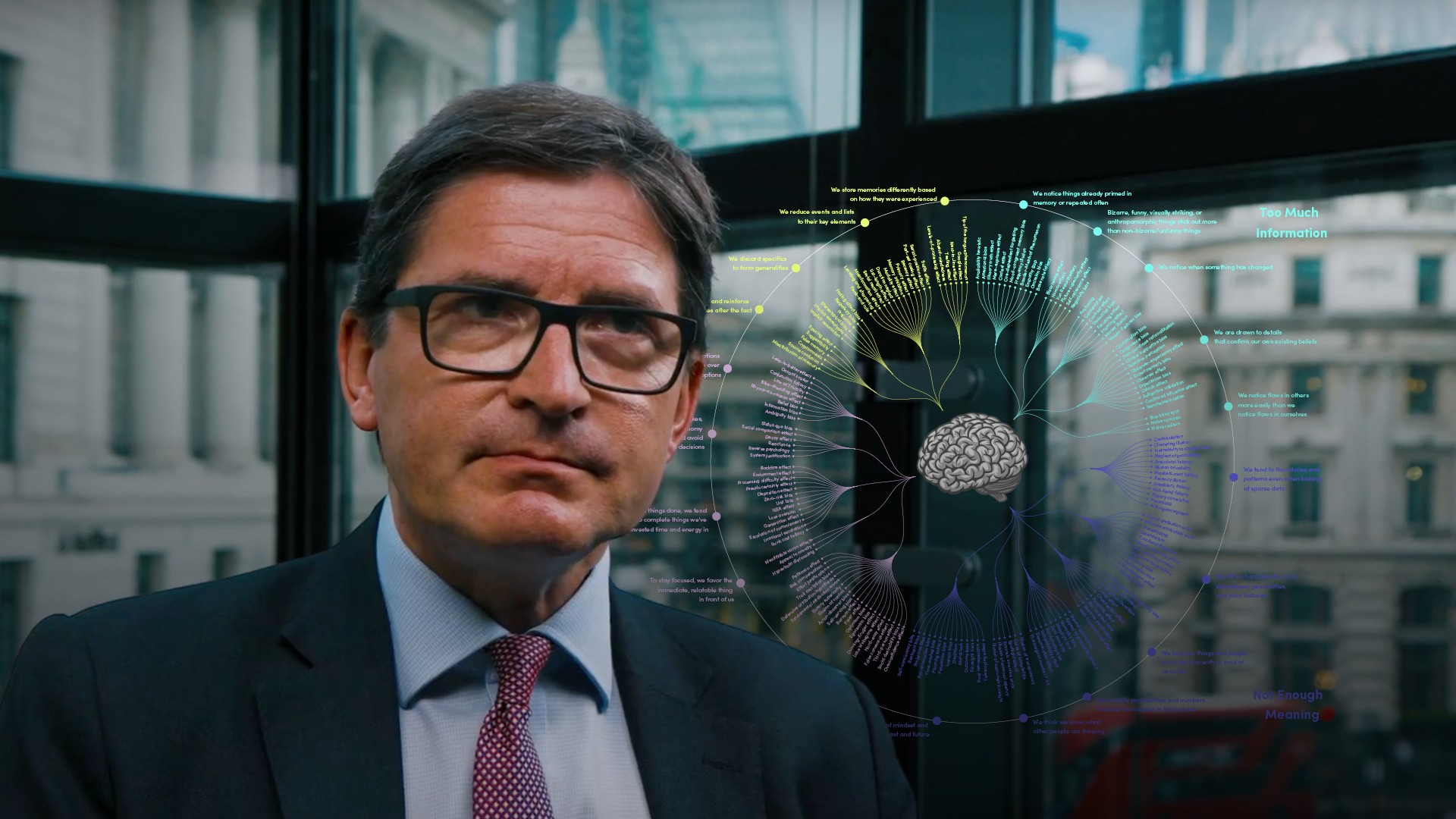
Additional Bias Effects

Roger Miles
25 years: Behavoural science & conduct
In this video, Roger expands on his video "Bias Effects" by covering more biases including confirmation bias, availability bias, hysteresis, social proof and delusion.
In this video, Roger expands on his video "Bias Effects" by covering more biases including confirmation bias, availability bias, hysteresis, social proof and delusion.
Subscribe to watch
Access this and all of the content on our platform by signing up for a 7-day free trial.

Additional Bias Effects
17 mins 13 secs
Key learning objectives:
Define and give examples of confirmation and availability bias, social proof, hysteresis, and delusion bias
Understand why biases happen
Understand why conduct regulators care about behavioural science
Overview:
The FCA are especially concerned with biases in finance, because they lead to irrational decisions that negatively impact consumers. Some of which are explained below including confirmation and availability bias, social proof, hysteresis, and delusion bias.
Subscribe to watch
Access this and all of the content on our platform by signing up for a 7-day free trial.
What is the FCA’s focus?
The new financial regulation is called conduct regulation, and that’s because the regulator likes to look at your conduct, meaning how you behave, what you actually do on a normal day in your workplace. Conduct regulators expect people who work in finance to be especially aware, and wary, of biases that get in the way of sound rational decision making.Why do biases happen?
- When there is too much information, there’s too much information to take on board
- When the information is incomplete, it may have gaps in it, so your unconscious brain invents information to fill in the gaps
- When we don’t have enough time, or you’re in a hurry, you jump to conclusions
- When memory fails, you generalise, or just focus on a couple of easy-to recall details
What is confirmation bias, and give a financial example?
Confirmation bias is when we look for facts to support the point of view that we already hold.- In financial sales, this bias translates into forcing a product on a counterparty when as a salesman you are “going with your instinct” for what they want, rather than properly inquiring after what they actually need.
- Similarly on the customer side, people like to believe that their first choice of any product was the right one, so they don’t have to change their minds, or put any effort into considering alternative choices.
What is availability bias, and give an example?
Availability bias is when we tend to judge a risk based on the information that we can most easily get a hold of, or remember.- As a society we tend to worry more about the risky stuff in the news headlines i.e. aeroplane crashes, yet we tend to overlook the more realistic risks that will strike our lives i.e. common diseases.
- For example, the final performer in a talent contest tends to get the highest number of votes as the audience members recall the last performance they heard to the greatest extent.
What is hysteresis, and give an example?
Hysteresis is the time lag between when something happens to you, and when you notice that the event has happened.- In the real world, the time lag between someone being hit by a risk and realising it can cause real distress.
- In financial sales, this is referred to as unrecognised detriment, where customers realise how badly they’ve been treated. As a finance professional, the moral is, don’t ignore a badly-served customer, face up to it and communicate with all parties involved.
What is social proof, and when may it be a problem?
As humans, we tend to do things, and buy things, because we see other people doing and buying them.- Advertisers and marketers utilise this by putting celebrities as the face of all kinds of products, to give you a bit of aspirational encouragement to buy these items.
- This can have negative effects in financial markets, when lots of people buy all kinds of financial products, driving up share prices and inflating asset bubbles because others on the trading floor are doing the same. As a result, from a conduct regulation viewpoint, it is extremely important.
What is delusion bias, and why is it important to conduct regulators?
Delusion bias is when someone has an exaggerated belief in their own skills, ignoring rationality.- For example, in meetings where someone at the table seems not to know what they’re talking about, and yet they plough on regardless, and nobody stops them.
- This is important for conduct regulators as it addresses the concept of challenge. If you see something not working properly, i.e. somebody taking a decision they’re not competent to make, you should call it out.
Subscribe to watch
Access this and all of the content on our platform by signing up for a 7-day free trial.

Roger Miles
There are no available Videos from "Roger Miles"



























